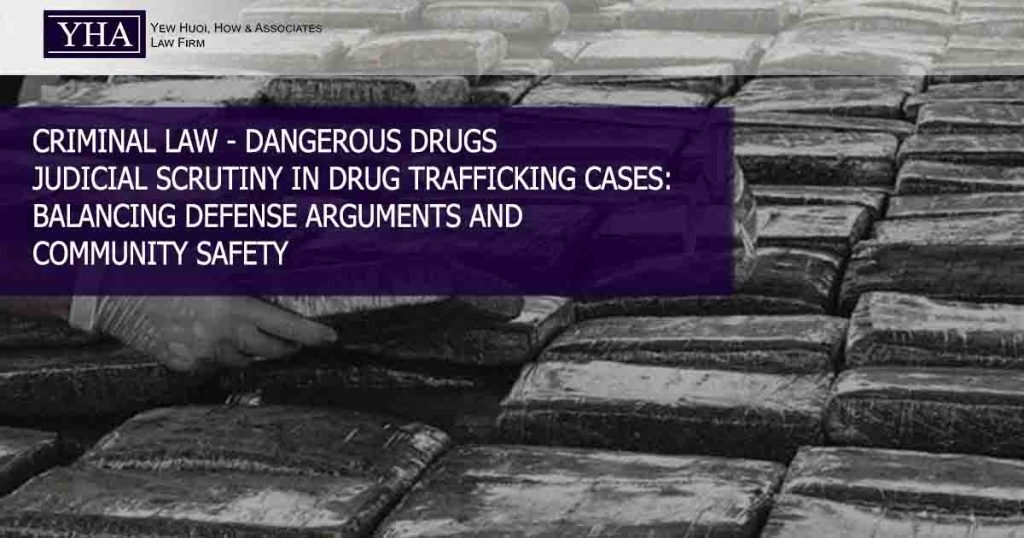Illustrative Scenario:
Police officers, acting on a tip-off about drug trafficking, conducted a raid at an apartment in Selangor. Posing initially as municipal officers for a mosquito inspection, they gained access to the apartment. Upon being confronted by Chief Inspector TM, the first appellant, a Nigerian male, attempted to close the door but was overpowered by the officers. In the ensuing chaos, he and the second appellant, a South African male, attempted to escape; one via the balcony, and the other was later found hiding in the ceiling. Dangerous drugs were found inside the apartment in a plastic bag.
Issues:
- Whether the appellants successfully challenged the presumption of trafficking under section 37(da)(iiia) of the Dangerous Drugs Act 1952.
Laws & Legal Principles:
- Dangerous Drugs Act 1952 (DDA 1952): Sections concerning trafficking and presumptions related to drug offenses.
- Section 39 DDA 1952 – Trafficking in dangerous drugs.
- Section 37 DDA 1952 – Presumption.
- Penal Code Act 574: Addresses the punishment for offenses committed within Malaysia.
- Kidnapping Act 1961: Details penalties for abduction and related crimes, emphasizing harsh sentences for ransom-related offenses.
- Criminal Procedure Code: Section 289(a) provides specific conditions under which sentencing variations can apply.
Application and Sentencing:
The first and second appellants were found guilty and each sentenced to 20 years in prison and 18 strokes of the cane. The third appellant, also sentenced to 20 years, was exempted from caning under section 289(a) of the Criminal Procedure Code due to particular mitigating factors. The severity of the sentences reflects the court’s intent to use these cases as deterrents against similar crimes, especially considering the appellants were first-time offenders and former students in Malaysia.
Reference Cases:
- Muhammad Isa Bin Aris & Ors v PP [2011] 5 MLJ 342
- Khairudin Bin Hasan v PP [2010] 6 MLJ 145; [2010] MLJU 648
- Teh Hock Leng v PP [2010] 1 MLJ 741
- Mohd Haikal Bin Mohd Khatib Saddaly & Ors v Public Prosecutor [2009] 4 MLJ 305
- Krishna Rao Gurumurthi v PP & Anor Appeal [2009] 3 MLJ 643
- Teng Howe Sing v Public Prosecutor [2009] 3 MLJ 46

